So, as of Jan 1st 2024, I am finally retired, exactly 60 years from graduating, 50 years after starting specialist practice at The Middlesex Hospital in London, 37 years after leaving England to work at Duke University in North Carolina, and after 30 years at the Medical University in Charleston. It will not be a huge change, since I stopped seeing patients and doing procedures in 2012 (on Friday 13th May). Organizing weekly and annual academic conferences, research and writing have kept me a little engaged, and indeed impressed and somewhat intimidated by all of the advances in my chosen field of gastroenterology. I have written and spoken about some of those dramatic changes many times, perhaps too many, but I can't resist the temptation now to reflect on some key people that have helped and influenced me along the way. I am indebted to hundreds who have encouraged and supported me - thank you all - but would like to highlight a few who got me launched.
I should start with my Dad, Oliver John Coode Cotton. He was a family doctor in a village called Kingstone on the borders of Wales. His office (called his "surgery" in British-speak) was in our house, and I happen to have the door sign.
Living "above the office", I was well aware of medical practice from a very early age as patients came to the door at all times. Dad practiced single handed 24/7/365 for almost 20 years. I accompanied him in his home made electric car to house calls in local farm houses, and even helped our "dispenser" to mix medicines in our own little pharmacy. Dad didn't try to persuade or dissuade me into a medical career, indeed I didn't see much of him growing up as I was mostly far away at school. But, I was impressed by what he did and by the respect he engendered. And I struggled with Maths and Physics. Dad was certainly influential in my going to Cambridge University (Kings College) and then to St Thomas's Hospital in London for training, since he had been to both himself.
Dad was also an amateur engineer,. He taught us (and some village kids) some basic carpentry and was always fiddling with cars. He converted an old car to electricity during the war, when petrol was scarce. For some reason the car was named "Cowgoose". He also took up gliding, which we did all over the country together.
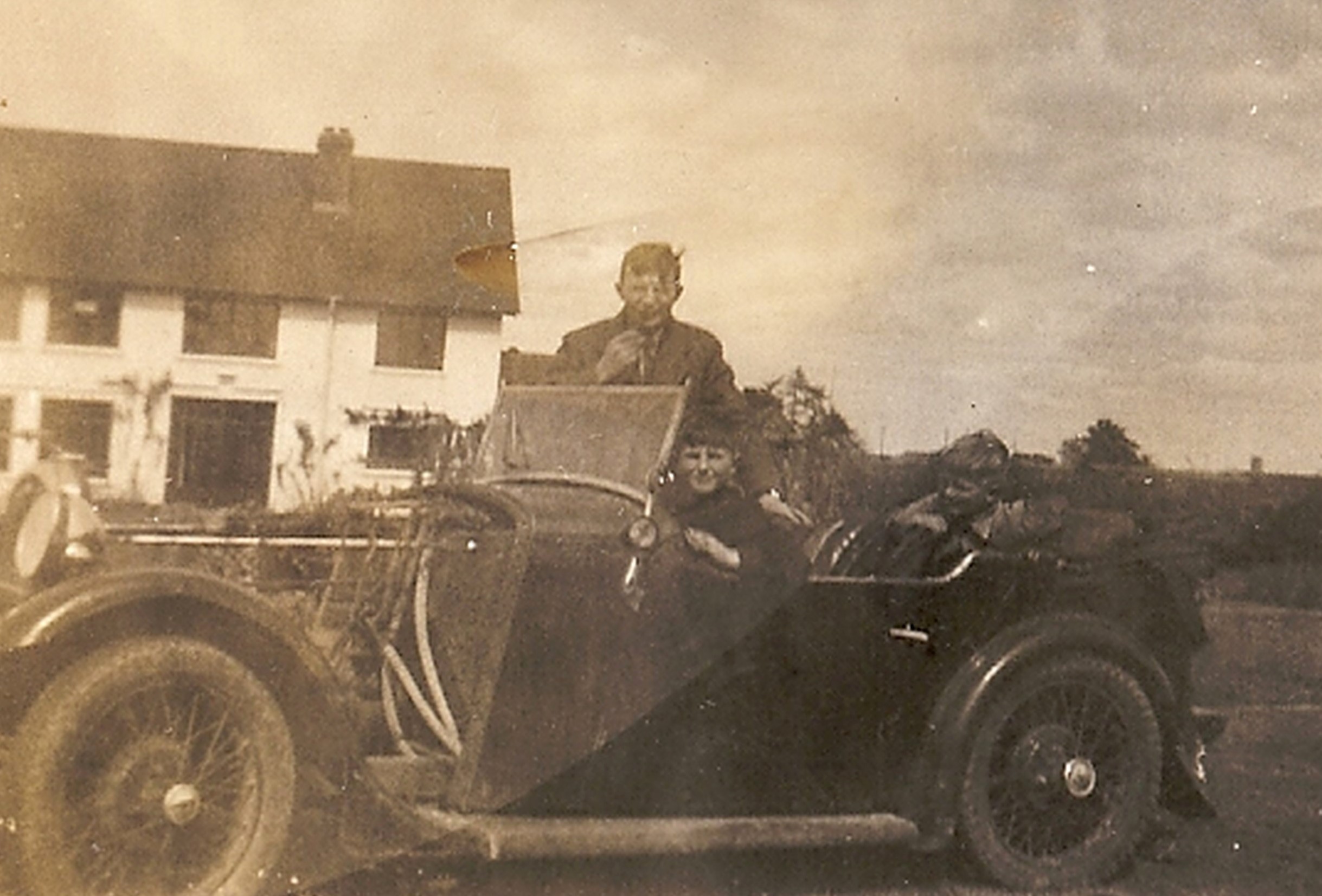
Sadly, Dad passed suddenly at the age of 58 in the fierce winter of 1963 while building a sports car in the garage. He is memorialized in the local church.

Dad had taken a partner, Doug Chandler, in 1950. Although then very young, I well remember when Doug entered my life. He was a medical officer during the war at the nearby RAF aerodrome. He was a dashing man with red hair and a smart uniform, with stories about the Air Force, Spitfires and Mosquitos. He gave me model airplanes with which to act out my fantasies. He had a significant influence on my life and development through adolescence, always thoughtful, calm and positive. He also introduced me to golf. When at home I would join him and the local Vicar at Wormsley or Kington courses on Wednesday afternoons.
Dad and Doug worked well together for many years, although something I found suggested occasional turbulence. Note the iconic phone number.
Doug also has a plaque at Kingstone church
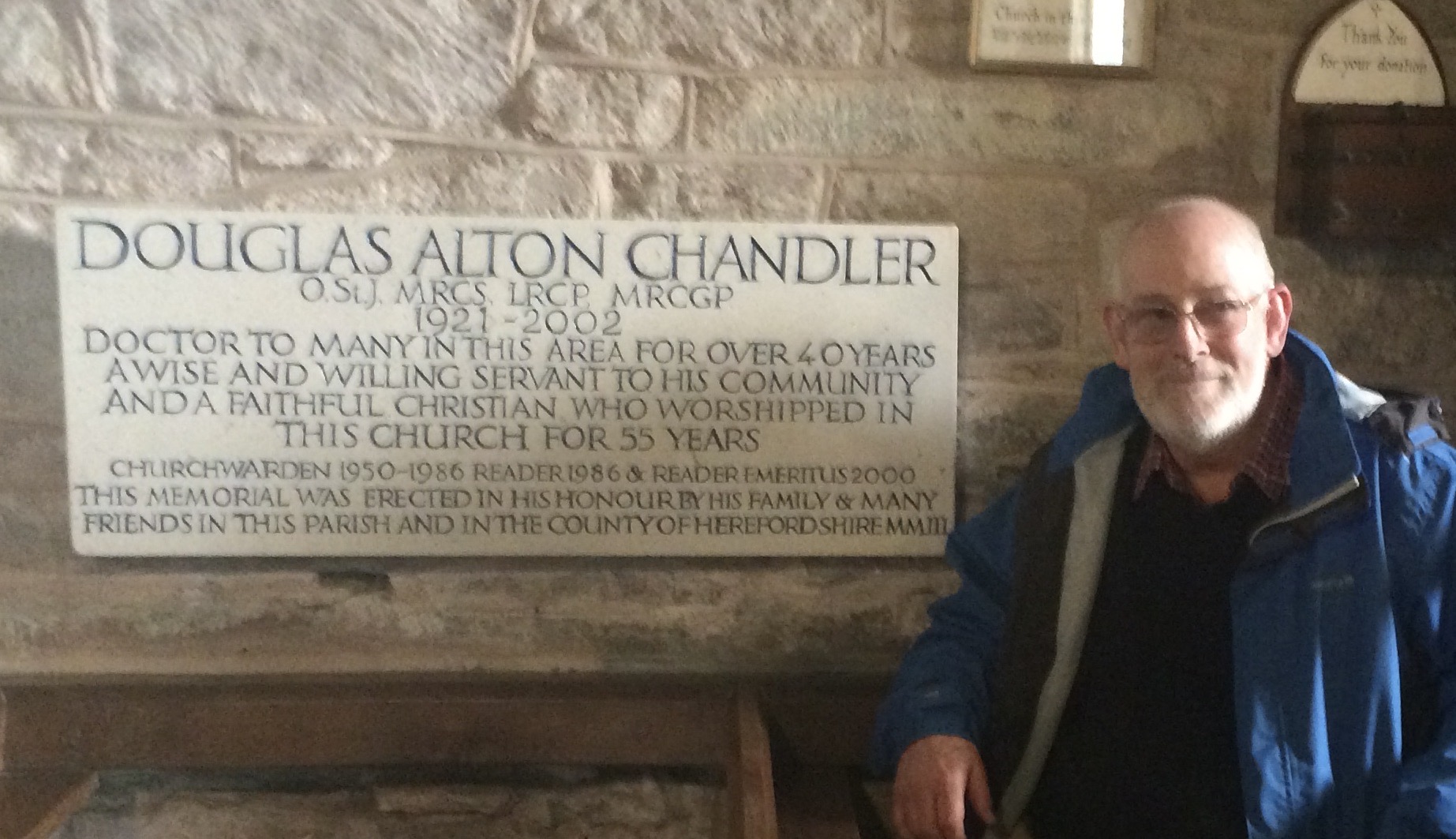
During my medical training there was an unspoken but certainly understood expectation that I would join Doug and Dad in their growing practice. Dad's sudden death in 1963, 3 months before my graduation, left me with a difficult decision. Doug kindly offered to keep the place open for me while I got more training, but I eventually decided to eschew general family practice and specialize. I think I was intimidated by the vast scope of general practice and chose a specialty which (at that time) seemed easier to handle. But I have not lost my admiration for general practitioners, navigating the massive spectrum of health and illness, and acting as their patients friend and counsellor.
A brief mention of schooling. After a few years well away from home at a typical Victorian-era brutal English "Prep "school (cold baths every morning and other rituals to stiffen the upper lip and prepare us to rule the empire) I was lucky to spend my teenage years at Leighton Park School. No individual teacher stands out, but it imbued me with Quaker principles which have served me well. Incidentally it was voted the top senior school in Britain last year.
After graduating as a doctor in 1963 I set off on further training. An important mentor was Dr Kenneth Robertson, Consultant Physician at the Royal South Hants Hospital in Southampton, on the south coast. Sadly, I can't find a photo of him. I was fortunate to serve as his houseman (intern) for a whole year and subsequently as his "senior registrar". "KMR" was a consumate physician. I had learnt some facts in medical school (between rounds of golf) but he taught me doctoring, which is not the same thing and equally if not or more important. He was very special, to very many people.
After that I flirted with a career in Pediatrics, training at the children's hospital in Birmingham. My enthusiasm was dented by working on a leukemia ward, where all the kids died, and in neonatal intensive care where the babies were so small that I was afraid I would drop them. I reverted to general internal medicine training for a while at the Warneford Hospital in Leamington Spa, and returned to St Thomas's in 1965 when a registrar position was advertised to work with Brian Creamer.

Brian was undoubtably resonsible for launching my career. He was a "Consultant Physician with an interest in Gastroenterology" (and subsequently Dean of the Medical School). He was a precise clinician, a keen teacher (one of the few on the staff) and also did research into small bowel disease in his "gut hut". He put me to work on lipids of the rat intestine, which got me a thesis (of dubious value) but also the realization that my future was not in basic science. Looking around for something else to do I read about gastroscopy. Brian said "we got one, it's in the closet if you want to try it. Patients didn't like it, views were poor and you couldn't take photos or biopsy specimens". It was wolf-schindler style "semi-flexible" instrument, that I actually still have in my garage. Happily for me a paper appeared that same year in the BMJ reporting on the first commercial fibreoptic instrument. Brian bought one with charitable funds and set me to work.
Within a year I was running a gastroscopy service for the hospital, and continued to do so until at last I got my own staff Consultant post at the Middlesex in 1973. Meanwhile, Brian continued to encourage and support me, not least by arranging for me to go to Japan in 1971 to see a doctor (Kasuei Ogoshi) who claimed to be able to cannulate the bile duct and pancreas with an endoscope. I went (via a few months in Iran..another story) and brought back what would be called ERCP to England. That procedure became my main clinical, teaching and research focus for the next 50 years. Thank you Kasuei.
I owe Brian for two more things that became central in my career. He taught me some elements of clinical research at a time when medicine was largely eminence-based. He gave me a small plaque which said "Those with enthusiasm have no controls and those with controls have no enthusiasm". In addition, he espoused collaborative multi-disciplinary care, notably with a weekly case conference involving surgeons, radiologists, pathologists, oncologists and others.
The Middlesex position was actually the 5th Consultant post I applied for, having obviously not impressed the 4 previous interviewing committees elsewhere. My Consultant partner was Peter Ball, an extraordinary man. He encouraged me to develop and apply my limited skills while himself excelling in unusual ways. In addition to applying his impressive clinical skills at the hospital he was also an expert on snakes at London zoo, and on orchids at Kew gardens...and spent a day each week in Harley st practice.
That's how I got started, and who helped. All part of life's rich tapestry.
Thanks if anyone is still with me.

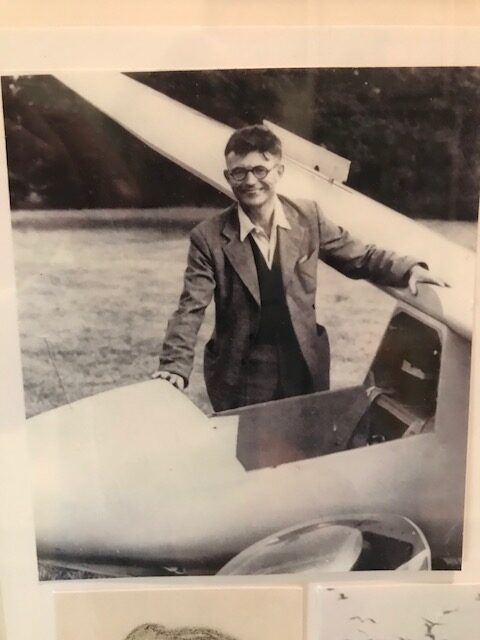
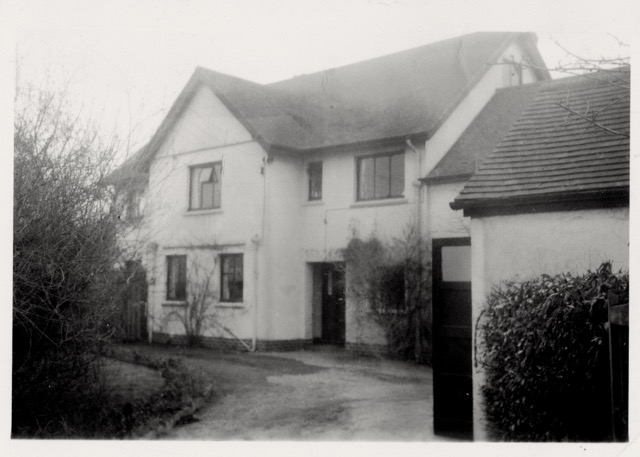
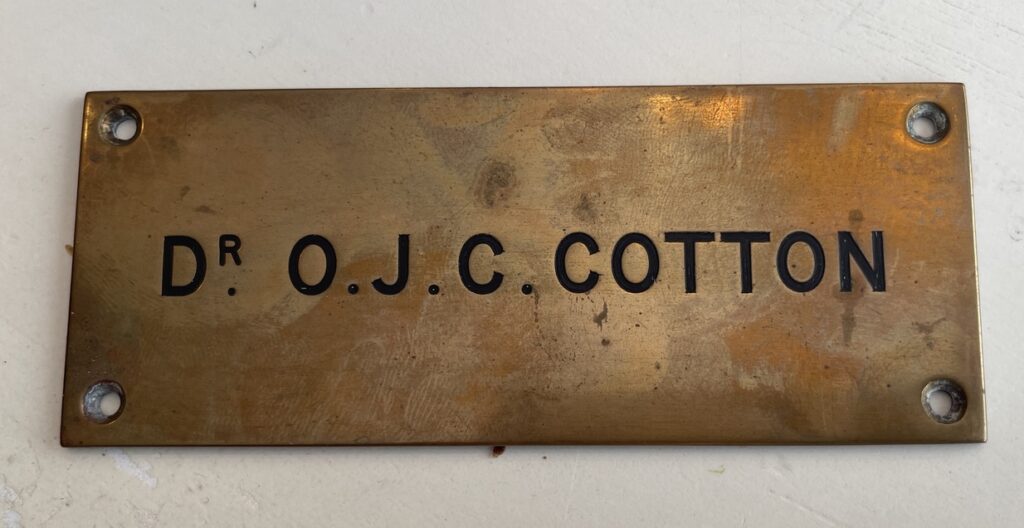

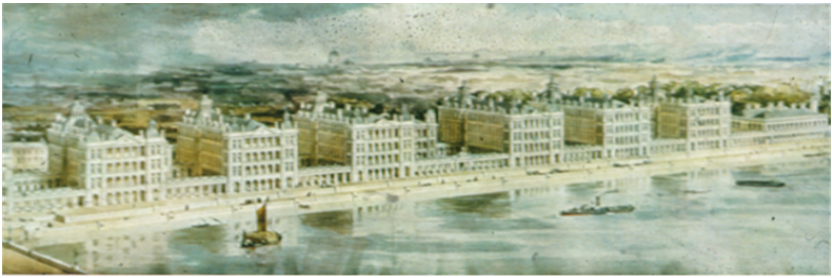
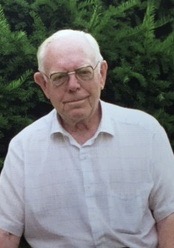
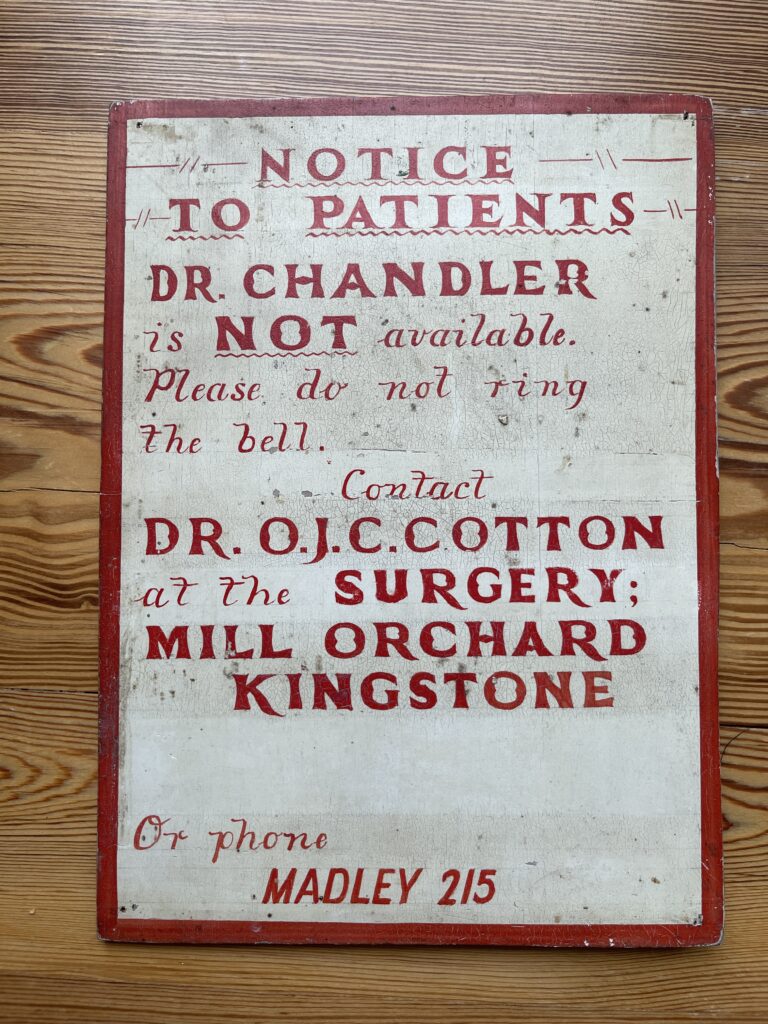
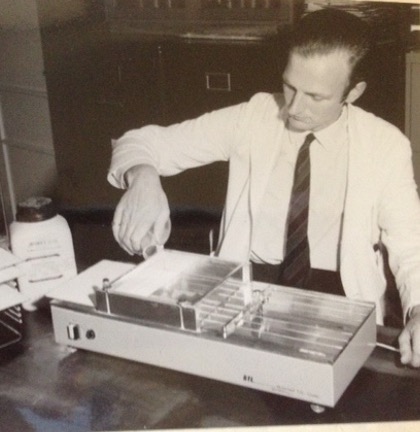
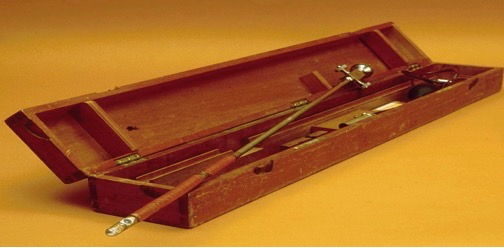
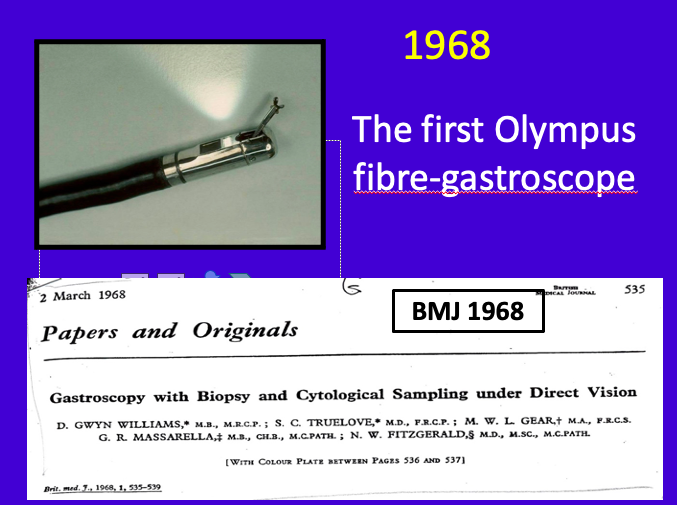
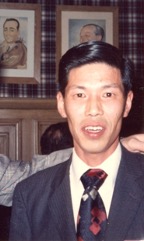
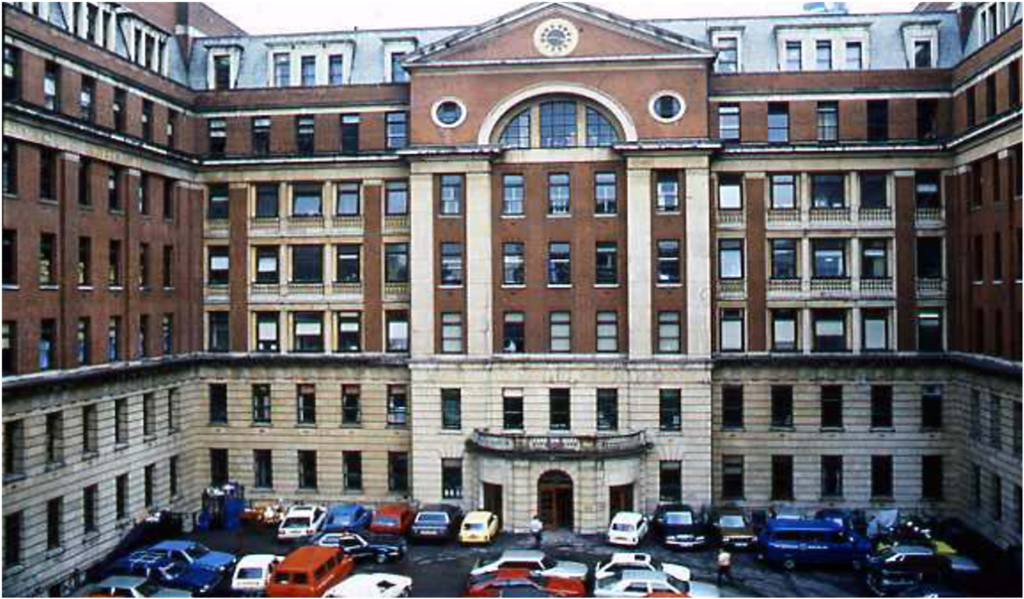
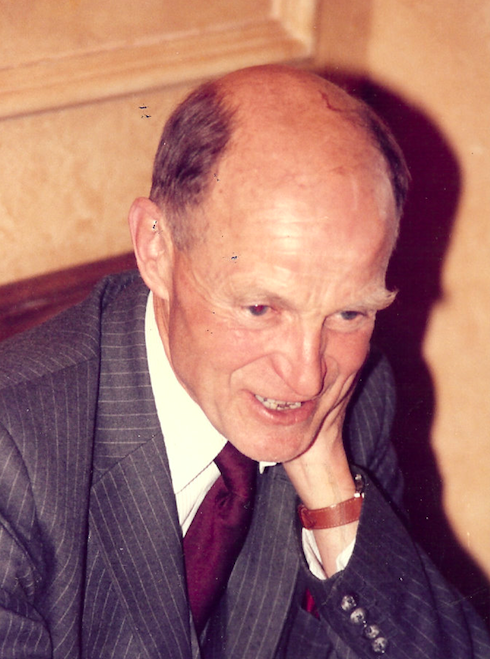
We all stand on the shoulders of great men and women, but I think you and your family tower above the rest. Great read, thanks!